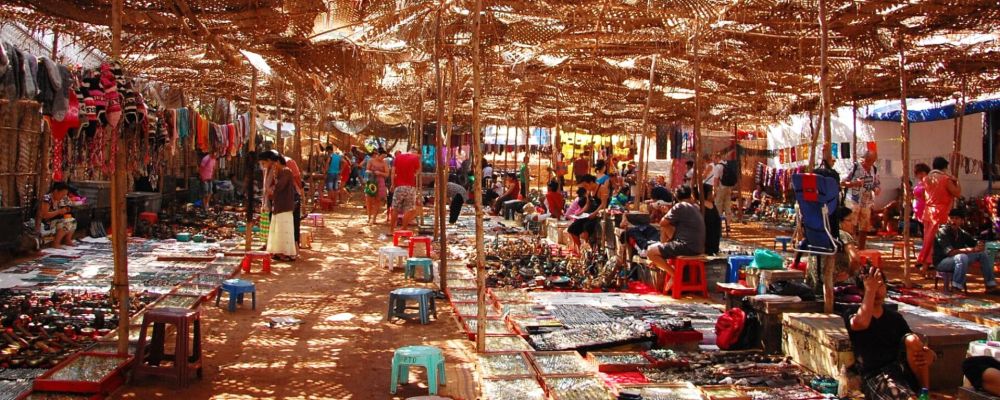

The Anjuna Flea Market, located in North Goa, India, is an integral part of Goan history and a reflection of its rich cultural tapestry. What started in the 1960s and 70s as a means for hippies to sell off their possessions has now become a vibrant, colorful, and eclectic market, attracting tourists from all over the world.
In the 1960s, Anjuna became the hotspot for the counterculture movement. It drew backpackers and travelers looking for spiritual enlightenment and a haven where they could live free from the constraints of mainstream society. The hippies were known for their bohemian lifestyle, which included the barter and sale of items, leading to the birth of the Anjuna Flea Market. Initially, it was a place where hippies would sell or trade their belongings, often for money to sustain their stay or for a ticket back home.
By the late 20th century, Goa's tourism industry started to flourish, and the Anjuna Flea Market transitioned into a more organized and permanent feature. Local artisans, traders, and vendors from other states of India began to set up stalls, selling a vast array of goods such as jewelry, clothes, local handicrafts, and spices, alongside the traditional items sold by the descendants of the original hippie community.
As Goa's popularity as a tourist destination grew, so did the Anjuna Flea Market. From being operational only on Wednesdays, the market started extending its operations to cater to the rising number of visitors. It became recognized for its live music performances, food stalls, and the engaging ambiance that captures the true essence of Goan life.
In the face of the evolving global tourism landscape, Anjuna Flea Market has seen a trend towards sustainability and local experiences. Tourists nowadays look for authentic engagements, preferring to purchase locally-made crafts and to experience the local culture firsthand. The market has adapted by offering more sustainable and eco-friendly products, providing a space for local musicians and entertainers, and promoting the Goan lifestyle.
The COVID-19 pandemic temporarily impacted the flea market's operations, but as travel restrictions ease, there has been a resurgence in tourist activity. The market continuously evolves to implement health protocols and provide a safe yet vibrant shopping experience for all visitors.
The Anjuna Flea Market in North Goa is more than just a shopping destination; it's a historical landmark that tells the story of Goa’s transformation from a hippie paradise to a world-renowned tourist hub. Whether you are looking for unique souvenirs, vibrant clothing, or just to soak in the Goan atmosphere, the Anjuna Flea Market is an experience that stays with you long after your visit.